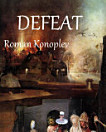White Nights
Um þessa rafbók
Since its publication, White Nights has been recognized for its lyrical sensitivity and profound psychological insight. Through a simple storyline, Dostoevsky delves into universal themes such as idealized love, loneliness, and the desire for connection, making the novella a timeless portrait of the human condition. The first-person narrative, with its confessional tone, deepens the bond between the protagonist and the reader, lending unique authenticity to the emotions expressed.
The enduring relevance of the work lies in its ability to capture the nuances of human relationships and the emotional dilemmas that arise at the threshold between dream and reality. By portraying the fleeting but transformative impact of an encounter, White Nights invites readers to reflect on the ephemerality of happiness and the resilience of hope, even in the face of life's inevitable disappointments.
Um höfundinn
Fyodor Dostoevsky was a Russian writer widely recognized as one of the greatest novelists in the history of literature. Born in Moscow, Dostoevsky is famous for his works that explore themes such as morality, human suffering, psychology, and profound existential questions, influencing generations of writers, philosophers, and artists. His narratives delve into ethical dilemmas and the complexities of the human soul, establishing him as a central figure in world literature.
Dostoevsky's work is characterized by its psychological depth and intense realism. Among his major works are Crime and Punishment (1866), The Brothers Karamazov (1880), The Idiot (1869), and Notes from Underground (1864). His novels explore the inner struggles of his characters, often set in contexts of poverty, despair, and moral dilemmas.
Dostoevsky was a pioneer in exploring the depths of the human mind, influencing fields such as psychology and philosophy. He is often cited as a precursor of existentialism, having inspired thinkers like Friedrich Nietzsche, Sigmund Freud, and Jean-Paul Sartre. His ability to reveal the nuances of human suffering and the internal conflicts of his characters made his works timeless, resonating with contemporary dilemmas.
His narratives are notable for their ability to combine social and political issues with psychological and spiritual analyses. The Russia of his time is depicted as a microcosm of universal human struggles, and his works often present a critique of materialism and the alienation of modernity.







